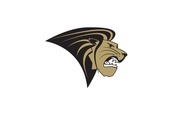Psychology: The Science of Human Potential
(View Complete Item Description)The first chapter provides an overview of the textbook and reviews the history of psychology and its methodology. Psychology is described as a science studying how hereditary (nature) and experiential (nurture) variables interact to influence the thoughts, feelings, and behavior of individuals. The remainder of the text will be organized in sections entitled “Mostly Nature” (Biological Psychology; Sensation & Perception; Motivation & Emotion), “Mostly Nurture” (Direct Learning; Indirect Learning (i.e., observational learning and language); Cognition), and “Nature/Nurture” (Human Development; Personality; Social Psychology; Maladaptive Behavior; Professional Psychology and Human Potential).
Material Type: Textbook




















